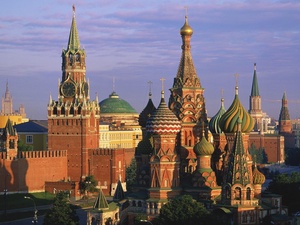
Bellona Launches Oslofjord Kelp Park
Bellona has launched the Oslofjord Kelp Park, a pilot kelp cultivation facility outside Slemmestad, about 30 kilometers southwest of Oslo, aimed at r...
News

Publish date: March 19, 2018
News
The results of yesterday’s presidential election in Russia surprised exactly no one and Vladimir Putin has swept to power once again for another six years, his fourth term in office, at the end of which he will have led Russia for longer than Josef Stalin.
While there may not be much excitement in reflecting on an election whose outcome was pre-ordained since the last time Russia underwent a similar charade six years ago, it is useful to reflect on how much quieter this election cycle was – and how that silence may be one of Putin’s most enduring legacies.
Unlike this year –when Putin faced off against what many suggest were candidates more or less hand chosen by the Kremlin – his last reelection was overshadowed by and enormous nationwide swell of protest against his rule. Marchers took to the streets from Vladivostok to Moscow to Kaliningrad to issue a collective groan of disgust over the fact that they seemed to have no real choice when it came to the presidential elections in their country.
It wasn’t enough to keep Putin out of office, of course, and he still managed to clear 64 percent of the rigged vote, but the protests made Putin look, as he stood on a rainswept stage in front of a Red Square crowd, many bussed in and paid to cheer, as if he’d broken a sweat.
That was May 2012. By November the same year, a law Putin ordered as a direct response to these protests took effect: The law allowing the blacklisting of “foreign agents” among Russia’s non-profit sector, which singled out groups that received even small amounts of funding from outside the country. Once so named, groups are either fined to death or harried out of existence by court fees as they were accused of “political activity.”
That this was Putin’s effort to get what he saw as foreign influence out of Russia was without question, and he has been overwhelming successful. Behind the protests against him, Putin saw the dark hand of the US State Department, then run by Hillary Clinton, which he accused of bankrolling the protests. This feud has caused spectacular fallout in the United States, where the entire US electorate is still litigating whether cyberattacks led by Russia swayed the last presidential election against the former Secretary of State, and in favor of Donald Trump.
But a more corrosive effect of Putin’s paranoia has been the – if not death than near death – of Russia’s independent non-profit sector, and the foreign agent law, which had fallen disproportionally on environmental groups and rights monitors, who, in many cases, received only minor assistance from funders abroad.
Immediately after the law took force, nonprofits were immediately targeted by intimidation campaigns. Rights groups in Moscow turned up for work to find their walls graffitied with the words “foreign agent.”
Later, in 2014 as the government redoubled its efforts target supposed foreign agents, the Kremlin granted the Justice Ministry the power to name foreign agents on its own. Immediately, the ministry’s blacklist swelled and by the end of 2015, it had forced more than a third of non-profits in Russia out of business. The number of mostly environmental groups operating in Russia dropped to about 160.
Among those were Bellona Murmansk, and Bellona’s St Petersburg office, the Environmental Rights Center Bellona.
Meanwhile, 62 nonprofits in Russia filed a challenge to Russia’s foreign agent law with the European Court of Human Rights in Strasbourg France, which seeks to overturn the law. It is unclear when the case will be heard, though it is one of the many filed out of Russia – cases which tend to clog the court’s docket.
But, as Putin from time to time is keen to boast, the number of independent nonprofits operating with foreign assistance in Russia continues to drop, mostly because groups who find themselves tarred as foreign agents simply close themselves rather than turn their limited funds on a legal battle to clear their names.
According to Putin’s own reckoning, the number of so-called foreign agent nonprofit operating in Russia fell this year to merely 89. By the time Putin’s current term, which began today and will be over in 2024, that number is bound to be considerably smaller.
It’s an astounding accomplishment, and the Soviet leader who Putin will out-serve would doubtless be proud his culture of paranoia has so durably survived

Bellona has launched the Oslofjord Kelp Park, a pilot kelp cultivation facility outside Slemmestad, about 30 kilometers southwest of Oslo, aimed at r...

Our November Nuclear Digest by Bellona’s Environmental Transparency Center is out now. Here’s a quick taste of just three nuclear issues arising in U...

For three years now, Bellona has continued its work in exile from Vilnius, sustaining and expanding its analysis despite war, repression, and the collapse of international cooperation with Russia in the environmental and nuclear fields

The Board of the Bellona Foundation has appointed former Minister of Climate and the Environment Sveinung Rotevatn as Managing Director of Bellona No...